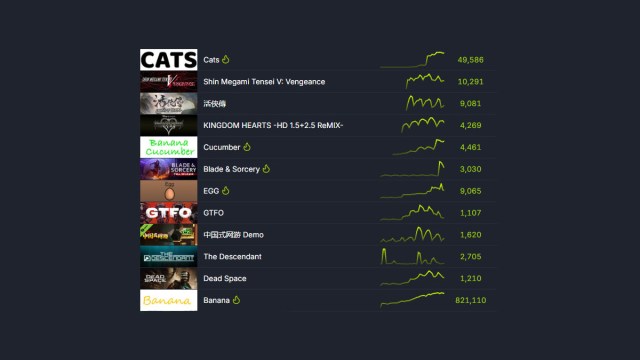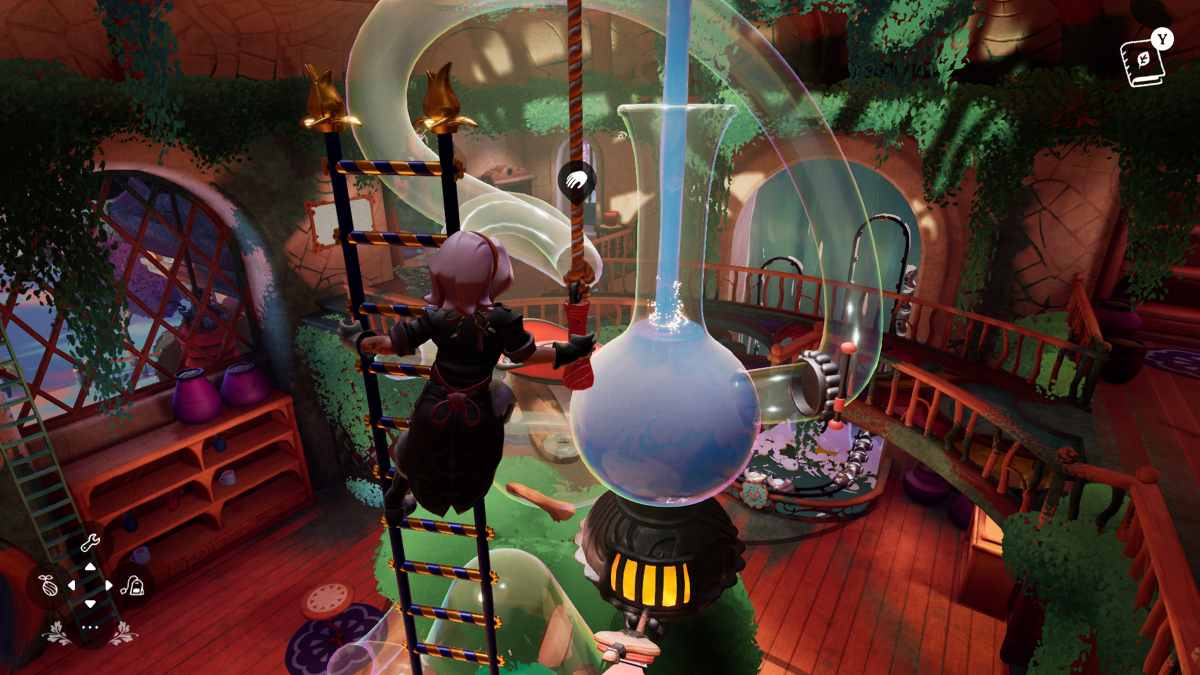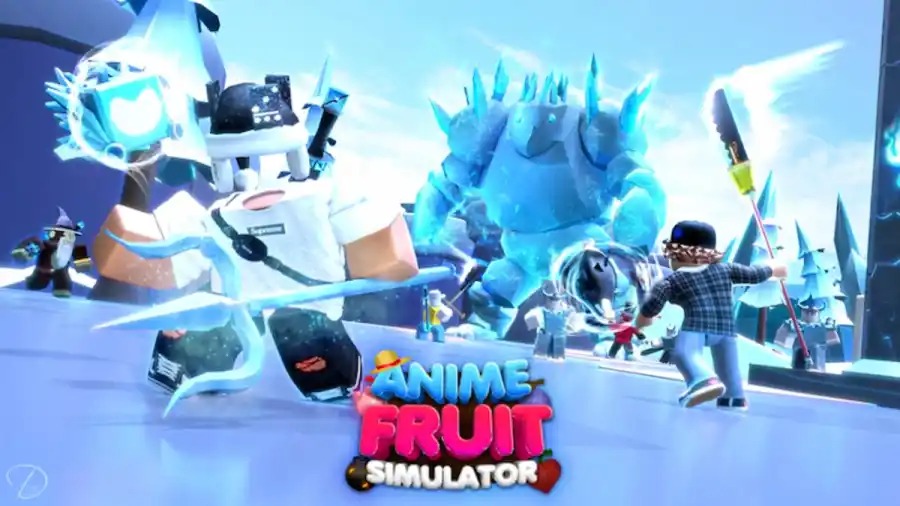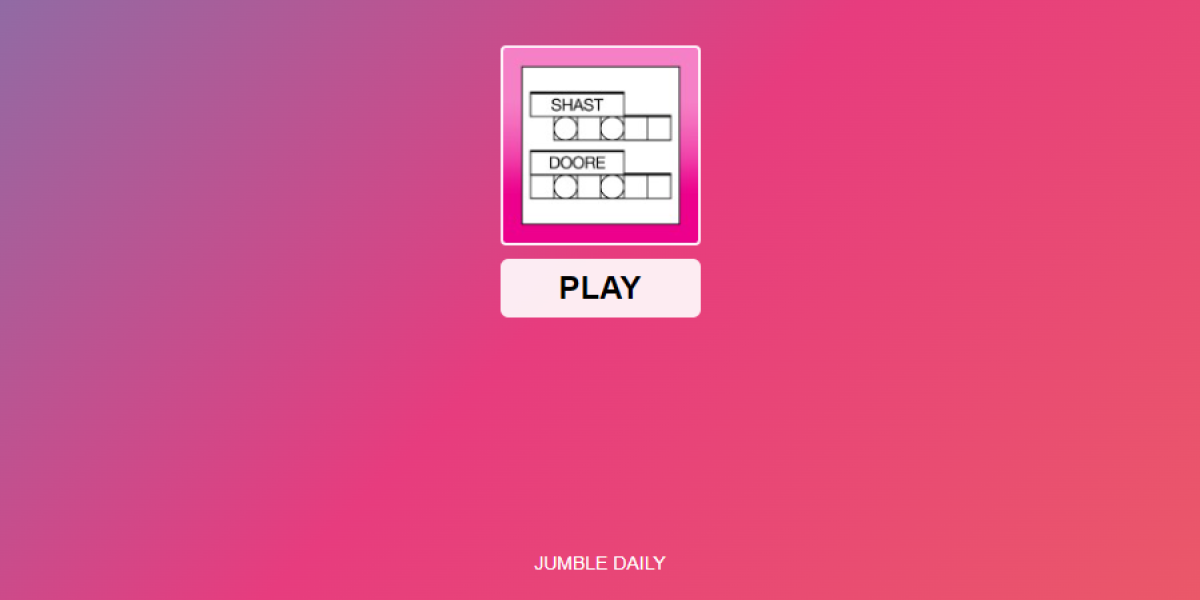The Steam charts are full of unfamiliar names right now. Many players are wondering what Banana is and why it’s going viral, much like other titles with suddenly high player counts like Cats, Cucumber, and EGG.
The answer feels unfortunately familiar with the internet’s recent climate of web3 fire alarms going off in every direction. Banana and its contemporaries are “games” that have users seeing dollar signs, and like NFTs or the metaverse, one successful case quickly brought with it a slew of copycats.
Banana, EGG, Cucumber, and all the other Steam clicker games explained
Here’s a simple explanation of Banana—There’s nothing to do in the game other than click on whatever object the game is named after. A banana, an egg, a rabbit smoking a cigarette, it doesn’t matter. The real draw of these games is that you get a random item drop added to your Steam account after a certain amount of time, for Banana, it’s one common Banana every 3 hours and one rare Banana every 18 hours. The central idea behind this, according to the official Banana Discord server, is “just collecting bananas and then sell them in market.”
So, players collect various Bananas, Cats, Cucumbers, and all other assortments of in-game items with the hopes of reselling them on the Steam Marketplace for a profit. If that sounds like NFT logic, particularly because these items are digital and have no inherent worth, that’s because it effectively is.

The tangible success of clicker games like Banana feels flimsy. The Steam chart shows abnormal player activity compared to the normal ebbs and flows of more established titles’ player counts, although that can be attributed to the fact that these games reward users for staying active at all times. The official Twitter/X account for Banana has a mere fraction of the Steam game’s following, meaning its engagement is suspiciously low considering the player numbers, and similar comments can be made for every other clicker game in question.
The Banana Discord server has the biggest following with more than 30,000 members at the time of writing, but that still pales in comparison to its 800k+ concurrent player count in the last 24 hours. The numbers just don’t add up.
So, the answer to why Banana and other clicker games are currently viral may be multi-facted. The first and simplest is that it’s a game that gives users a chance at getting money without having to do anything but click a screen. The second is that the media attention naturally following the trail of high concurrent player counts for Banana and similar games creates a snowball effect. The third, and possibly most debatable reason, is that not everything is what it seems.
The concurrent player numbers compared to social media engagement feel suspicious, and botting is common in most other areas of the internet where money can be made, whether it’s crypto-related or flipping tickets for major artists’ tours. Regardless, it seems like Banana will remain high up on the Steam charts and continue to breed copycats if Valve doesn’t address the situation.












Published: Jun 18, 2024 06:43 am